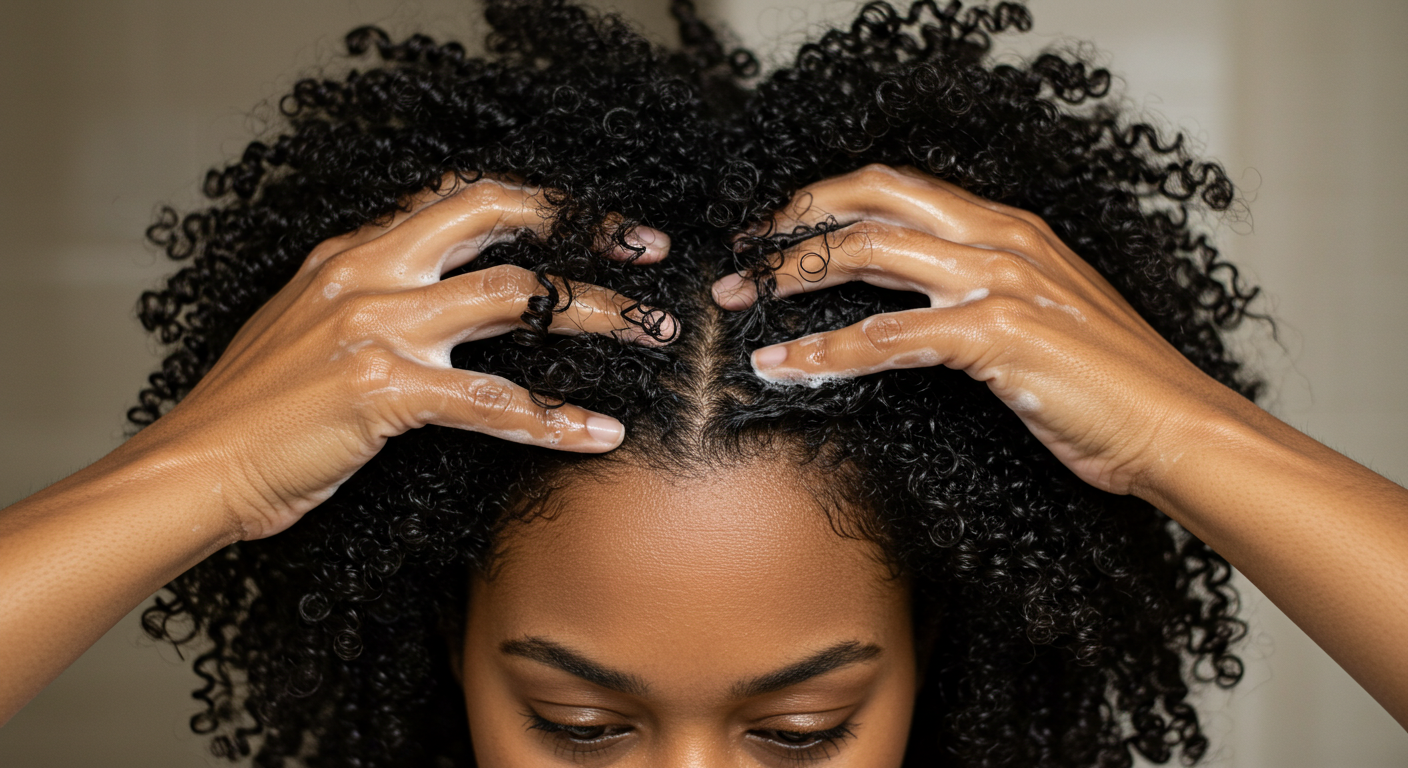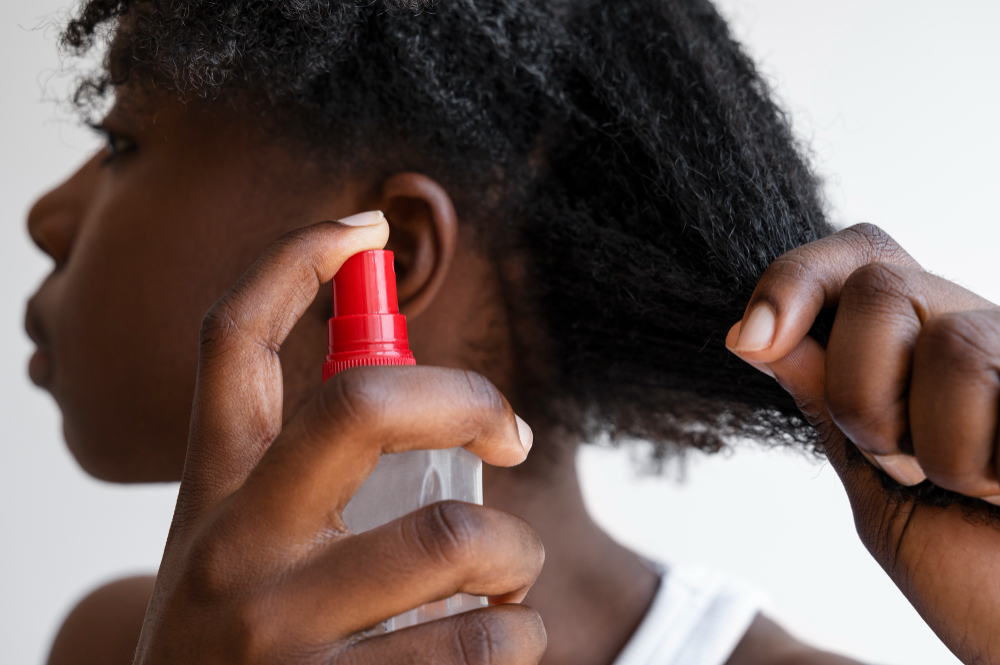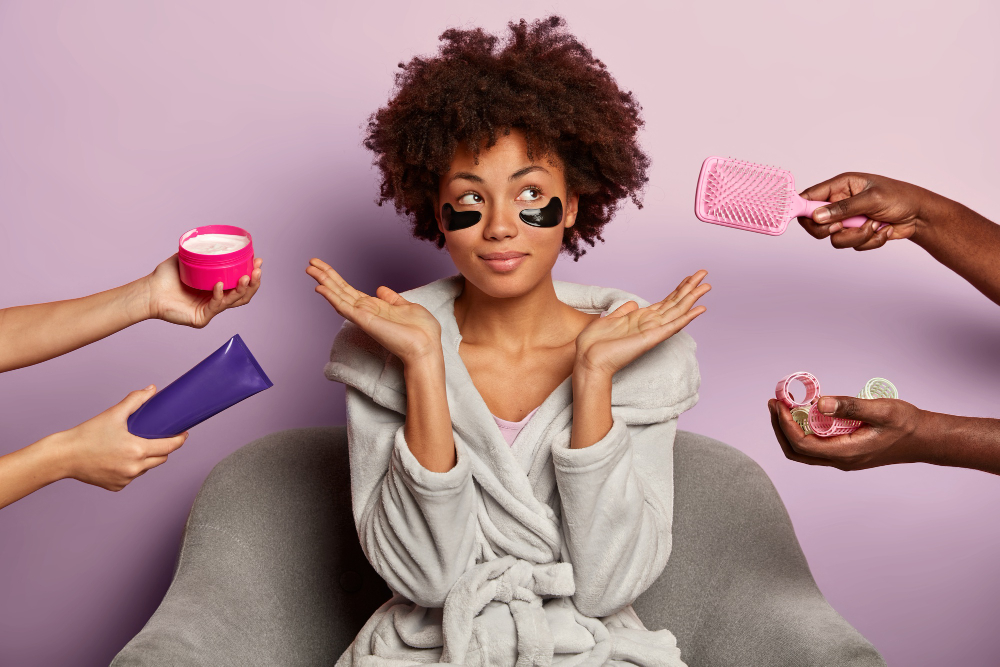Trending Article · 12 mins read
All You Need to Know About Co-washing Natural Hair

Co-washing natural hair? What does that mean?
Depending on the region you live in, you may or may not be familiar with the idea of co-washing.
Not to worry, in this article, we'll tell you everything you need to know about co-washing. Who knows, you might just create a haircare routine that includes co-washing.
What is Co-washing?
Co-washing, also referred to as conditioner washing, is the use of a cleansing conditioner to wash your hair instead of regular shampoo.
Co-washing is known to give your hair the added benefit of moisturising and nourishing your hair while washing it.
Is Co-washing Natural Hair Better Than Shampooing?
We can't say it's ‘better’, frankly, co-washing serves its purpose, and so does shampooing. Let's explain.
A shampoo is a cleansing agent, so with the presence of certain cleaning ingredient,s it washes dirt off your hair and scalp. Sometimes, this might lead to stripping your hair of some naturally occurring oils.
Now, with a co-wash, you get to cleanse your hair to a good extent, and you skip the part where your hair loses natural oils, because it moisturizes and nourishes your hair.
As you can see, both products serve different functions; the key is using them appropriately to get the benefits.
Let's paint an easy picture for you.
Imagine a natural girlie who washes her hair weekly, but she notices that her hair gets dried out or frizzy with every weekly wash. Instead of increasing her wash day to 14 days, a co-wash might come in handy in this case.
The reason? Co-washing would clean her hair while giving her the moisture and nourishment her hair clearly needs.
Now, bear in mind that co-washing is not for everyone. But, would co-washing work for your hair? The best way to know is to- give it a try!
So, who should absolutely try Co-washing?
Who Should Try Co-washing?
1. Girlies with Dry Hair
Co-washing gives dry hair types the added moisture their hair needs to thrive. How?
Most co-washs are packed with conditioning ingredients that support rehydration. So, the hair doesn't have to feel dry from using regular shampoos.
2. Girlies with Damaged Hair
Damaged hair has already been through a lot of stress. If you're not careful, you might make the damage worse. Using a regular shampoo consistently (especially if it's not adapted for damaged hair), might increase damage or breakage.
To give your hair that gentleness, it requires, especially when it comes to cleansing, a co-wash is the way to go.
Should I use a rinse-out conditioner after co-washing natural hair?
No. You don't have to use a rinse-out conditioner after using a co-wash. The co-wash already has conditioning ingredients, and it already does what a rinse-out conditioner should in addition to its added cleaning abilities.
Can I use a regular conditioner as a co-wash?
No. We highly recommend using a co-wash, not a regular rinse-out conditioner. This is largely because it doesn’t have the cleansing properties that a co-wash has. Using a regular conditioner might leave your hair feeling greasy.
Now, co-washing seems to be “all that” with everything we've talked about so far. But keep in mind it has its downsides.
Let's talk about the cons of co-washing
Cons of Co-washing Natural Hair
1. Co-washing natural hair can lead to product buildup
Co-washes don’t have as much cleansing capacity as a shampoo so they may not clean your hair up as well as a shampoo would. So, over time, some product remnants could remain on your scalp, clogging your pores, leading to buildup.
2. Co-washing can weigh certain hair types down
Since co-washes are conditioners, over-application can leave fine hair types, light hair types feeling weighed down. To manage this, try not to apply too much co-wash; apply just the right amount your hair needs.
3. Co-washing may leave your hair feeling greasy
Now, this con is subject to personal experience. Some natural hair girlies say that co-washing leaves their hair feeling greasy, unlike when they stick with traditional shampoo, where their hair feels squeaky clean.
Other girls absolutely love co-washing natural hair, as it does wonders for their hair. To know where you stand, give it a try. We do need to add that, if you have oily hair, co-washing natural hair might leave your hair feeling greasy.
4. Scalp issues
When product buildup happens, over time, it can cause itchiness or scalp irritation, especially if your scalp is sensitive.
But, it doesn’t mean this will happen to everyone, so test out the product and be sure to read the product label for additional information.
Common Co-washing Natural Hair Mistakes
1. Not rinsing properly
After co-washing, you need to rinse your hair thoroughly. Thorough rinsing cleans up your hair, which ensures a reduction in product buildup. If you can feel like it, you can rinse multiple times until your hair feels clean.
2. Failure to clarify your hair
Clarifying your hair is a sure way to prevent clogged pores and buildup. So, including a clarifying shampoo among your products, to use at least once a month, will do your hair great good.
3. Excess product use
As mentioned earlier, it's not advisable to use too much product. So, use your co-wash moderately, as your hair requires.
How to Use a Co-wash
- Choose a product. Take time to visit the store and pick a product based on your hair needs. Look out for directions of use and the ingredient list to be sure it works for you.
- Wet your hair thoroughly, then apply a generous yet moderate amount of the co-wash on your hair and work through your strands and scalp for about 3-5 minutes. You can also read the directions on the bottle.
Wrapping up
Co-washing natural hair may not be for everyone, but if your hair needs it, you definitely should give it a try. Remember, don’t use excess products, or skip a shampoo where necessary.
What are your favourite co-washes? How has your experience been using a co-wash? We’d love to hear your experiences. Feel free to join the community and share.


